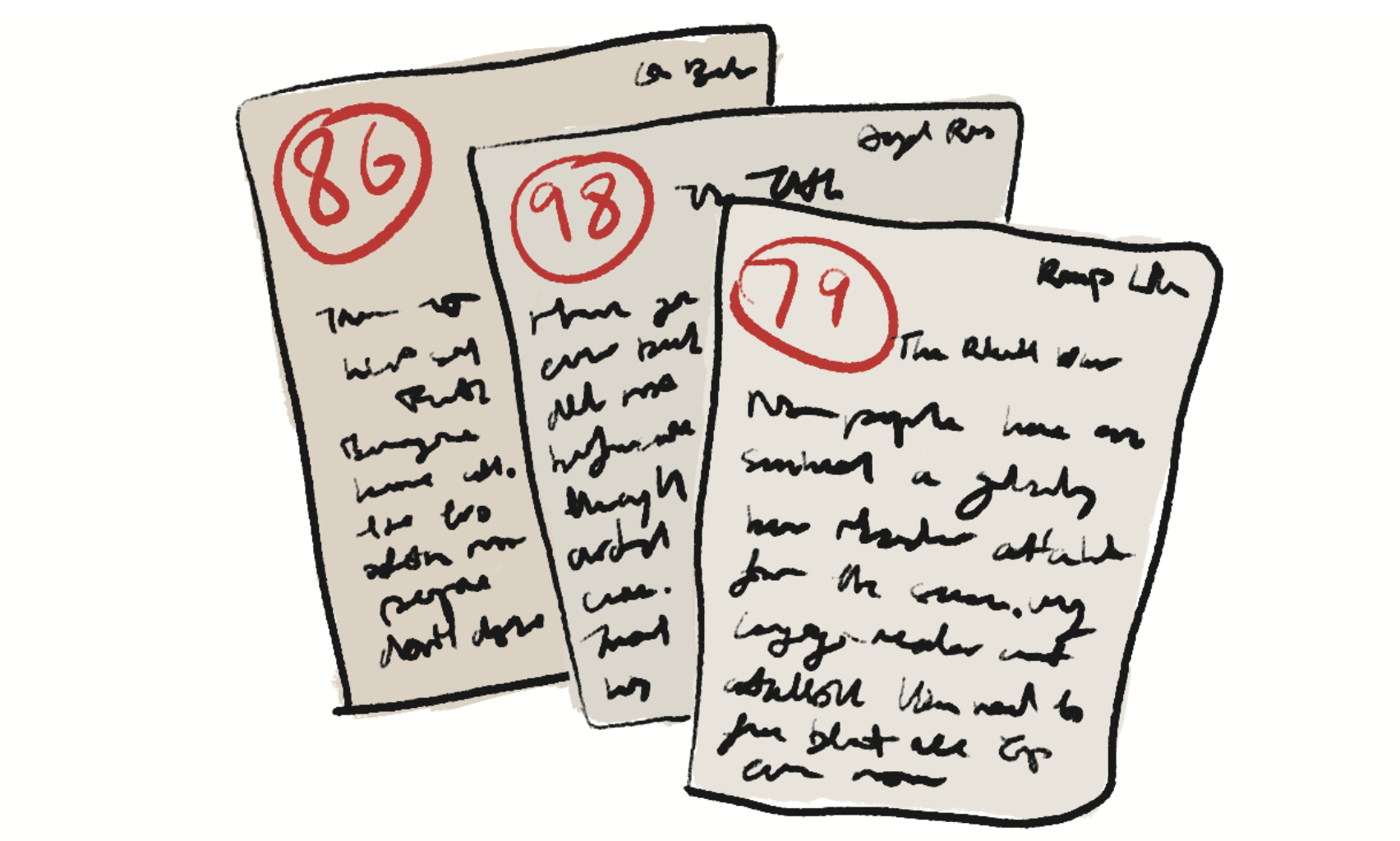Grades wield significant influence over the lives of Deerfield students. At the end of each term, students always feel the same spike in heart rate and shortness of breath every time they get the DAinfo notification signifying that grades were released. Unfortunately, this event has been compounded by a grading system whose artificial standards conflict with accurate grading.

As of right now, Deerfield’s academic policy is to encourage a broad class median of 89 for all courses with exceptions for all advanced courses, believing that the majority of scores would reflect that average anyways. While the intention is to create a standardized average that teachers can always fall back to, this policy only puts students into an arbitrary box that has been long criticized throughout the student body’s time at the Academy.
Creating an artificial standard doesn’t enforce an equality of scores but rather puts teachers into a position where they have to choose between not rewarding high-performing students or harshly punishing those struggling in their class. This dilemma exists because administration pressures teachers to constantly maintain the 89 median, meaning that if they want to give a well-deserving student a high score they might need to lower everyone else’s grade in order to compensate. The opposite is also true, if the teacher wants to raise the class average because they believe that everyone has done well then those who perform the best will have their scores reduced in order to adhere to the 89 average. The existence of such a standard encourages teachers to prioritize a reasonable class median over accurately grading their students.
Additionally, there are teachers who don’t follow the 89 average rule.The effects of grade compression will be most strongly felt by students in classes where the median is significantly lower or higher than 89. Those who enjoy the benefit of having median averages two or three points higher than the rest of their class will suddenly be catapulted to the first quintile even if it doesn’t accurately reflect their relative capabilities. This punishes students who aren’t lucky enough to get a so-called “nicer” teacher even if they do perform at a similar level. One of the most detrimental effects of the current grading system is the phenomenon of “teacher-shopping,” where students select courses based on the teacher’s perceived leniency in grading rather than their own interests in the subject matter..
Moving forward, there are multiple ways to help improve our grading system. One of the simplest ways is to first abolish the 89 average and increase the frequency of table-reads and group grading. Additionally, peer schools such as Phillips Exeter have started to implement a 6 point grading scale in order to prevent inconsistent grading and stress surrounding the one or two points that a numerical system has. Either way, the current system that we operate under, while functional, is definitely not something that students or faculty should deem as Deerfield-level quality.

